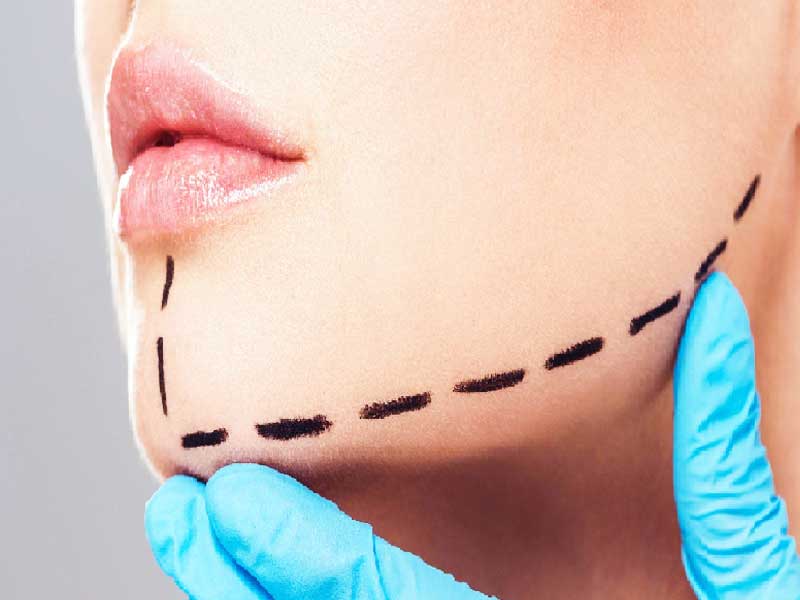Jaw Surgery in Turkey (Orthognathic Surgery): Transforming Smiles, Restoring Confidence
Whether you’re seeking to correct a misaligned bite or enhance your facial aesthetics, jaw surgery in Turkey offers a captivating blend of innovation, expertise, and life-changing results. Step into a world where every smile tells a story of transformation and embark on your journey to a brighter, more confident tomorrow.
With advanced techniques and personalized treatment plans, jaw surgery in Turkey goes beyond cosmetic enhancement. It’s about sculpting smiles that radiate beauty and harmony from within, empowering individuals to embrace their true selves with pride.
Jaw Surgery in Turkey (Orthognathic Surgery)

Surgery Time
1-3 HOURS

Time in Turkey
7 DAYS

Hospitalization
1-2 NIGHTS

Recovery
6-8 WEEK

Transportation
PRIVATE DRIVER

Accommodation
4/5* HOTELS
GET FREE CONSULTATION

What is Jaw surgery?
Jaw surgery, also referred to as orthognathic surgery, is a specialized procedure aimed at correcting various abnormalities within the jaw bones or teeth. This intricate surgery is designed to address issues such as bite irregularities, facial asymmetry, and challenges with chewing or speaking. Through precise surgical interventions, orthognathic surgery aims to restore proper function and harmony to the jaw and facial structures, ultimately enhancing both oral health and overall well-being.
Types of Jaw Surgery in Turkey
In Turkey, various types of jaw surgeries are performed to address different issues and achieve optimal facial harmony. Here’s a brief overview of common types of jaw surgeries:
- Maxillary Osteotomy: Maxillary osteotomy involves surgical repositioning of the upper jaw (maxilla) to correct issues such as a recessed or protruding upper jaw, open bite, or asymmetry. This procedure aims to improve both function and aesthetics of the upper jaw.
- Mandibular Osteotomy: Mandibular osteotomy, also known as jaw surgery, focuses on the lower jaw (mandible). It is performed to correct conditions such as overbite, underbite, or facial asymmetry by repositioning the lower jaw to achieve proper alignment with the upper jaw.
- Bimaxillary Osteotomy: Bimaxillary osteotomy, or double jaw surgery, involves simultaneous repositioning of both the upper and lower jaws to correct severe bite abnormalities, facial asymmetry, or skeletal discrepancies. This comprehensive procedure addresses issues affecting both jaws to achieve optimal functional and aesthetic outcomes.
- Genioplasty: Genioplasty, or chin surgery, is a procedure aimed at reshaping or repositioning the chin to enhance facial harmony and balance. It can involve advancing, reducing, or altering the shape of the chin to improve overall facial aesthetics.
- TMJ Surgery: Temporomandibular joint (TMJ) surgery is performed to address disorders or injuries affecting the TMJ, which connects the jaw to the skull. This surgery may involve procedures such as arthroscopy, joint repositioning, or joint replacement to alleviate pain, improve jaw function, and restore joint stability.
Each type of jaw surgery in Turkey is tailored to the individual needs and goals of the patient, with the aim of achieving optimal results and enhancing both function and aesthetics of the jaw and facial structures.

Benefits of having Jaw surgery
Jaw surgery in Turkey offers a range of benefits for individuals seeking to address jaw-related issues and improve their overall quality of life. While not everyone may be suitable candidates for this procedure, those who undergo jaw surgery may experience the following transformative benefits:
✅ Improved dental function: Jaw surgery can correct bite irregularities, aligning the teeth properly and improving chewing and biting function.
✅ Enhanced facial aesthetics: By repositioning the jaw and addressing facial asymmetry, jaw surgery can enhance overall facial harmony and aesthetics.
✅ Better speech function: Correcting jaw misalignments can improve speech clarity and articulation for individuals experiencing speech difficulties due to jaw abnormalities.
✅ Improved airway: Jaw surgery can address issues such as obstructive sleep apnea by enlarging the airway and improving breathing during sleep.
✅ Improved confidence and self-esteem: Achieving a balanced and aesthetically pleasing facial appearance through jaw surgery can boost confidence and self-esteem in individuals who may have felt self-conscious about their jaw-related concerns.
✅ Improved oral hygiene: Proper alignment of the jaw can facilitate better oral hygiene practices, reducing the risk of dental issues such as decay and gum disease.
While not everyone may be suitable candidates for jaw surgery, those who undergo the procedure can experience significant improvements in various aspects of their oral health, facial aesthetics, and overall well-being.
How much does Jaw surgery cost in Turkey?
facial cosmetic procedures:
| Operation | Min Stay in Hotel (Nights) | Final Price (Euro) |
|---|---|---|
| Face Lifting | 6 | €2600 |
| Vertical Face Lift | 5 | €1800 |
| Forehead Lift | 5 | €1200 |
| Neck Lifting | 6 | €1800 |
| Neck Beautification | 5 | €2750 |
Reviews Jaw surgery Turkey
Reviews for jaw surgery in Turkey offer valuable insights into the experiences of patients who have undergone this transformative procedure. These reviews provide firsthand accounts of individuals who have benefited from jaw surgery, highlighting aspects such as the quality of care, surgical outcomes, and overall satisfaction with the treatment received. Reading reviews can help prospective patients gain confidence in their decision to undergo jaw surgery in Turkey and provide valuable information to guide them in selecting the right surgical team and facility for their needs.
How to Prepare for Jaw surgery
Preparing for jaw surgery involves several important steps to ensure a smooth and successful procedure. Here are some essential guidelines to help you prepare:
- Consultation with a Surgeon: Schedule a consultation with a qualified oral and maxillofacial surgeon specializing in jaw surgery. During this appointment, discuss your medical history, current medications, and any concerns or questions you may have about the procedure.
- Medical Evaluation: Your surgeon will conduct a thorough medical evaluation to assess your overall health and determine if you are a suitable candidate for jaw surgery. This may include physical examinations, dental imaging, and other diagnostic tests to evaluate the structure and function of your jaw.
- Treatment Plan: Work closely with your surgeon to develop a personalized treatment plan tailored to your specific needs and goals. This plan will outline the surgical approach, expected outcomes, and post-operative care instructions.
- Pre-operative Instructions: Follow any pre-operative instructions provided by your surgeon, which may include:
- Discontinuing certain medications or supplements that can increase the risk of bleeding or interfere with anesthesia.
- Avoiding smoking and alcohol consumption in the weeks leading up to surgery, as these can impair healing and increase the risk of complications.
- Maintaining good oral hygiene to reduce the risk of infection.
- Lifestyle Adjustments: Make necessary lifestyle adjustments to prepare for the recovery period following jaw surgery. This may include arranging for time off work or school, arranging transportation to and from the surgical facility, and preparing a comfortable recovery space at home.
- Dietary Considerations: Your surgeon may provide dietary guidelines to follow before and after surgery. In the days leading up to the procedure, stick to a nutritious diet and avoid consuming food or drink after midnight on the night before surgery, as instructed by your surgical team.
- Emotional Preparation: Prepare yourself emotionally for the surgical process and recovery period. Understand the potential risks and benefits of jaw surgery and maintain realistic expectations about the outcomes.
- Support System: Enlist the support of family members or friends to assist you during the recovery period. Having a strong support system in place can help alleviate stress and ensure a smoother recovery process.
By following these guidelines and working closely with your surgical team, you can effectively prepare for jaw surgery and maximize the likelihood of a successful outcome.
Recovery from jaw surgery
Recovery from jaw surgery is a crucial phase that significantly contributes to the overall outcome of the procedure. While the surgical intervention is vital, understanding and adhering to post-operative care instructions are equally important. Here’s what you can expect during the recovery period:
- Pain Management: Despite anesthesia during surgery, some discomfort is expected post-operation. Your surgeon will prescribe pain medication to alleviate any pain or discomfort you may experience.
- Dietary Restrictions: Following surgery, you’ll be placed on a soft foods or liquid diet. This is necessary to facilitate healing and prevent any strain on your jaws while they recover.
- Oral Hygiene: Maintaining good oral hygiene is paramount to prevent infection. Your surgeon will provide detailed instructions on how to care for your oral health during the recovery period.
- Follow-Up Appointments: It’s crucial to attend all scheduled follow-up appointments with your surgeon. These appointments allow your surgeon to monitor your progress and address any concerns or complications promptly.
- Rest and Recovery: Adequate rest is essential for proper healing. Avoid strenuous activities and exercise during the initial stages of recovery to allow your body to recuperate effectively.
By following these guidelines and staying committed to your recovery plan, you can ensure a smoother recovery process and optimize the results of your jaw surgery.


You Should Avoid this after Jaw Surgery
After undergoing jaw surgery in Turkey, it’s crucial to avoid specific activities to promote proper healing and minimize the risk of complications:
❌ Physical exertion: Avoid strenuous activities to prevent bleeding, swelling, and other issues.
❌ Using straws: Refrain from using straws as sucking can lead to increased bleeding.
❌ Touching or licking the surgical site: Keep hands and tongue away from the surgical area to reduce the risk of infection.
❌ Side sleeping: Sleep on your back with your head elevated to aid in recovery and avoid putting pressure on the surgical site.
Adhering to these precautions can support a smoother recovery process and optimize the outcomes of your jaw surgery.

Is jaw surgery risky?
Jaw surgery is typically regarded as a safe procedure, especially when conducted by a skilled and experienced surgeon. However, like any surgical procedure, there are potential risks and complications associated with jaw surgery, including:
- Dissatisfaction with results
- Bleeding
- Infection
- Reaction to anesthesia
- Nerve damage
- Swelling
- Breathing difficulties
- Discomfort
Although surgical complications are rare, it’s important to acknowledge that risks exist and should be carefully considered. Before undergoing jaw surgery, you’ll be required to sign a consent form, and it’s essential to thoroughly discuss these risks and complications with your surgeon.
What Sets Us Apart?
At our clinic, we pride ourselves on our unmatched expertise, extensive experience, and unwavering dedication to patient satisfaction. We go above and beyond to tailor each treatment to the individual needs and preferences of our patients, ensuring that they feel fully informed and comfortable every step of the way. Our commitment to excellence is evident in everything we do, from the initial consultation to the final result.